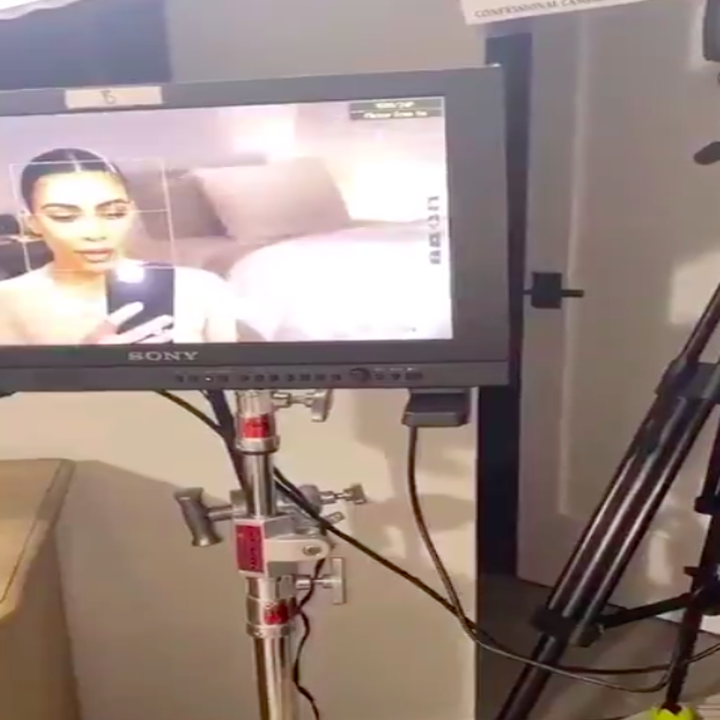This article is more than
4 year oldHow The Coronavirus Is Changing Television Production
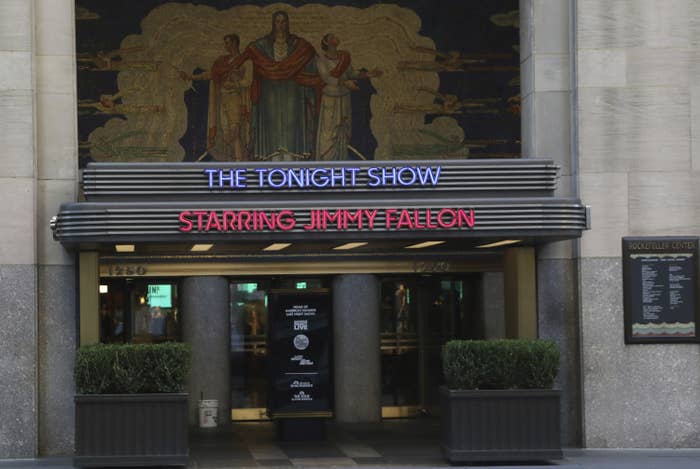
In just a matter of weeks, the coronavirus pandemic shut down all of Hollywood, bringing more than 70 television productions to a complete halt. There are fears about COVID-19 spreading in a close-knit working environment like television sets where there’s abundant human contact and endless transferring of germs, even at the cost of billions of dollars and countless production jobs.
The mandated quarantine has prevented the majority of TV shows from continuing to shoot, pushing back release dates and leaving people concerned about the future of the industry, but some producers jumped into brainstorming creative solutions to create their shows. The transition to virtual television production is still evolving as the world continues to grapple with an uncertain timeline of how long people will be in quarantine because of COVID-19.
BuzzFeed News spoke to producers on popular TV shows about how they’re working behind the scenes to stay in production, make sure the content well doesn’t run dry, and keep their networks in business.
Keeping Up With the Kardashians
Khloé Kardashian and Scott Disick were scheduled to film for an episode of Keeping Up With the Kardashian’s 18th season on March 16, but once the mandatory quarantine hit, executive producer Farnaz Farjam hopped on the phone with Kris Jenner and the two decided it wasn’t worth the risk to continue shooting with family members together in one place.
“I'm very confident and excited for people to see these episodes of Keeping Up during quarantine because they're actually super charming and they're super fun,” Farjam, who’s worked on the reality series since its inception in 2007, told BuzzFeed News. “They feel even more intimate, if that's possible because we're so intimate with them anyway.”
On Tuesday, March 17, iPhones were delivered to each family member so they could each continue filming on their own. Initially, they experimented with uploading their raw footage to a Google Drive and sharing what they’d been up to, but then producers decided to have runners pick up the iPhones directly from the family members’ houses once a week so that the footage would be as high resolution as possible.
Farjam said she had no concerns about the quality of content coming from Kim, Khloé, Kris, and Kylie since they’re already been producers on the show and are experienced in curating their own content. Not every reality star or celebrity could pull off filming by themselves without a lot of direction or assistance from producers or crew members, but if anyone could do it, it’s the Kardashian/Jenner family.
“I also work with development and we've tried to task certain people with self-shooting some stuff for us so that we could keep working towards things, and it's just not the same,” Farnaz said. “People just don't have the same skill sets as this family.”
They even briefly debated giving the cast professional filming cameras, but
in a time like this, there isn’t a lot of room for error without the technical expertise. They ultimately decided that iPhone cameras yielded high enough quality videos and it would be easier for the family to use a tool they’re already familiar with.
“I mean, honestly, I think Kim, Khloé, and Kris, and even Kylie, and even Kendall and Scott, I think everybody has been really having fun with it. They’re already kind of producers and EPs and they know what's fun anyway, so they're just kind of owning it and they're running with it,” she said.
On a recent episode of the show’s current season, Kourtney Kardashian announced she’s taking a break from filming after 13 years of being on camera. But when asked if Kourtney was participating in the quarantine shoots, Farnaz said “Kourtney’s involved.”
“She sends us some videos,” she added. “I just think that with Kim, Khloé, Kris, and Kylie, there's just some of them that like to do it more and are better at it.”
After watching some of the footage, Farnaz said the production crew realized they’d need to conduct professional-looking interviews to ask the women questions and enhance the episodes like they normally do. They sent their director of photography and someone in charge of lighting to set up interview rooms at the houses. Both crew members, who Farnaz said “stayed super safe during the quarantine,” wore hazmat-like gear — full painter’s suits and masks — when entering each home. They sanitized all of the equipment, and the families were instructed not to enter the rooms for the following 24 hours. They also left directions on the equipment about which buttons to press and how to use the cameras while producers asked interview questions over videoconferencing. Kim even posted a behind-the-scenes video of the setup in an Instagram story.
The episode about the quarantine which will include all of this collected footage is supposed to air sometime at the end of the current season.
“I think this is going to be such a big part of people's lives and the Kardashians are going through it like everyone else,” Farnaz said. “I think people will be curious to see what they did during the quarantine, so why not continue to capture it so that you can share it with the fans?”
The Tonight Show Starring Jimmy Fallon
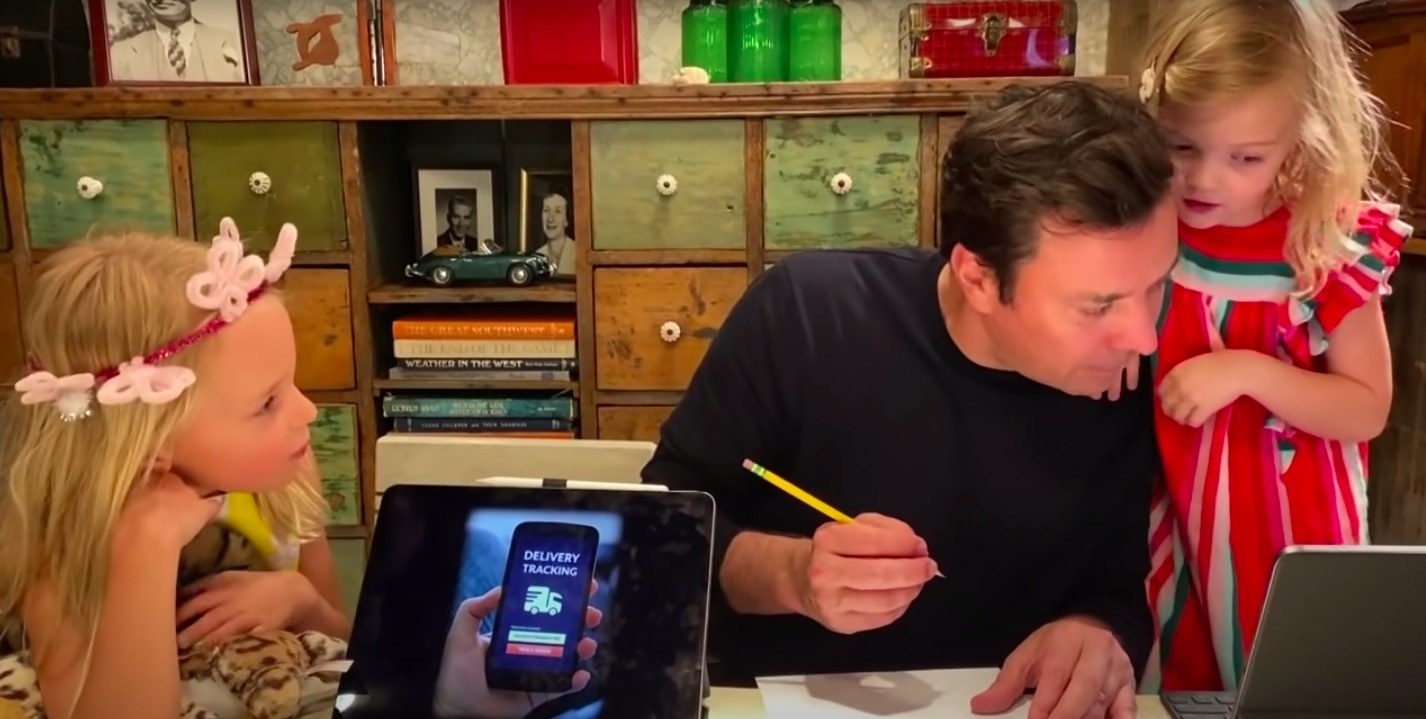
Jimmy Fallon |
The Tonight Show crew filmed the show’s last episode in their New York City studio on March 12 without an audience before shutting down for the foreseeable future. Everyone took the weekend to regroup, some of them relocating outside of the city, but according to producer Jamie Granet-Bederman, host Jimmy Fallon didn’t want to waste any time getting back onscreen in whatever capacity he could. A team of staffers met virtually on Monday to plan for a show the following day and with the help of Nancy Juvonen — Fallon’s wife who’s also an experienced producer and co-owns the production company Flower Films with Drew Barrymore — The Tonight Show Starring Jimmy Fallon: At Home Edition premiered its first installment that Tuesday
“Jimmy said he felt like he needed to do something. He was like, ‘I don't feel right being off the air,’” Granet-Bederman told BuzzFeed News.
Fallon and Juvonen filmed the entire show by themselves on their iPhones and using Zoom at their house in Long Island. The 10-minute segments have continued to run on YouTube with NBC then airing the videos along with rerun material. Similarly to the Keeping Up With the Kardashians team, the Tonight Show producers felt Fallon was well-equipped to continue filming from home because of his range of skills beyond his role in front of the camera.
Morgan said the writers room calls usually include about six to nine people and last between four and five hours. They take breaks throughout the day and are on the Zoom calls for less time than a normal day in their actual writers room, which Morgan said can make it feel even more focused because everyone has a certain block of time to get their work done.
“Of course this is all disruptive in certain ways, but at the end of the day we're still able to do our jobs,” Morgan said. “We are tremendously fortunate and lucky that we're able to do that, and any burden or small technological glitches that we have really pale in comparison to the work that's being done by all our essential workers, our doctors, our nurses, our mail carriers. So we're able to endure.”
The Walking Dead has maintained a rabid fanbase since it first premiered in 2010, and a lot of people are also turning to postapocalyptic films and TV shows in light of the coronavirus. Morgan said she’s glad shows like The Walking Dead, even though it’s about a zombie-related pandemic, can “give people comfort at a time like this.”
“I know it's odd for that to be something like a horror show,” she said. “But it's nice to be able to escape for a little while from the news.”
The future of TV production
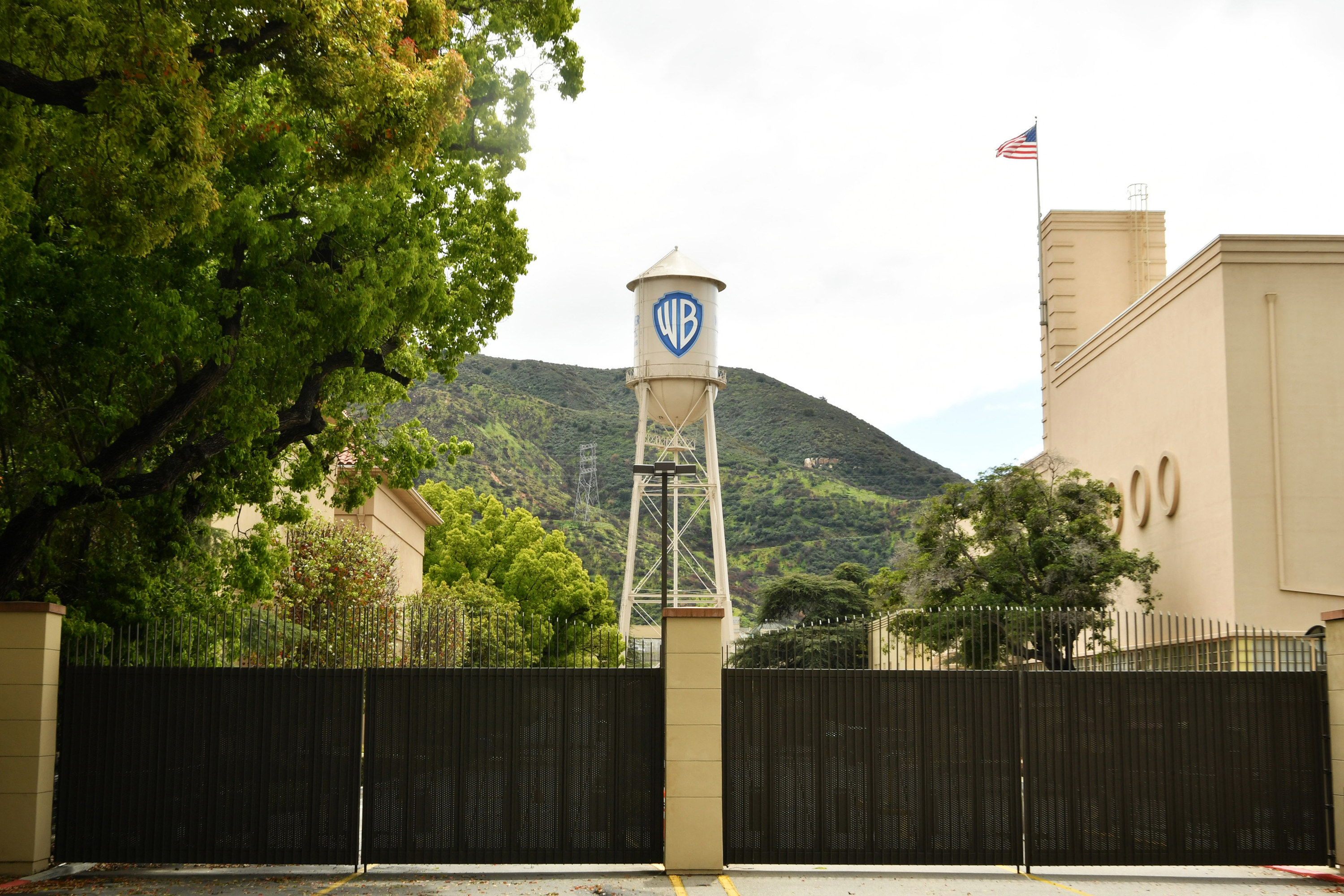
Warner Brothers Studios halted film and TV production amid Coronavirus on April 8, in Los Angeles, California. |
While some TV shows are virtually up and running and have shown that they’re capable of functioning with limited resources, unclear timelines about the coronavirus quarantine have left production crews who work in the field out of work and uncertain about the future of the industry. In a field of work that already lacks stability, with projects coming and going and crew members hopping from set to set, the coronavirus has left the state of television production especially in limbo.
“We don't know how this is going to change the industry in general, because I do think when everything goes back to normal, whenever that is, it won’t be the same exactly,” a crew member on NBC’s Chicago Fire who asked to remain anonymous told BuzzFeed News. “No one knows what that’s going to entail.”
While crew members are out of jobs and scrambling to pay their bills, the public is relying on television and movies more than ever as a form of entertainment and distraction while in quarantine, a paradox that isn’t lost on those same crew members. The Chicago Fire staff member expressed concern that those very workers responsible for creating TV shows on the ground aren’t being considered or prioritized.
“Everyone’s cooped up at home watching shows and watching movies and I’m like, ‘Who do you think is making that content for you to not be bored?’” the crew member said. “And yet I feel like our country is kind of ignoring gig and freelance workers, not just in television and movies, but also in music and theater. I think everyone in the arts is kind of getting left behind and not being thought of.”
Unlike others in the entertainment industry, unemployed production crew members don’t have the luxury of working from home, keeping their benefits, and maintaining job security.
Callie Moore, a camera assistant in Atlanta, was finishing up a job on Amazon’s upcoming series The Underground Railroad when the coronavirus cut production short by just a couple of days.
“It’s scary just to know that our coverage can go away in the blink of an eye,” she said. “And there’s nothing you can do about it because you’re not working, you're not making money, you're not working enough hours in order to cover yourself, then you're just floating.”
In addition to all of the unpredictability about when production crew members can get back to work on sets, producers have more questions than answers about what this new era of television production will look like in a post-quarantine world.
The Tonight Show producer Jamie Granet-Bederman said she thinks “there are some things that are better like this and obviously there are things that are worse.”
“To tell monologue jokes to no audience is obviously very hard, but the intimacy of the interviews have been a little bit more laid back and a bit more special. It's also a time when everyone's feeling very vulnerable, everyone's in their home, so they’re more comfortable,” Granet-Bederman said. “It'll be interesting to see what changes and what stays the same after all of this.”
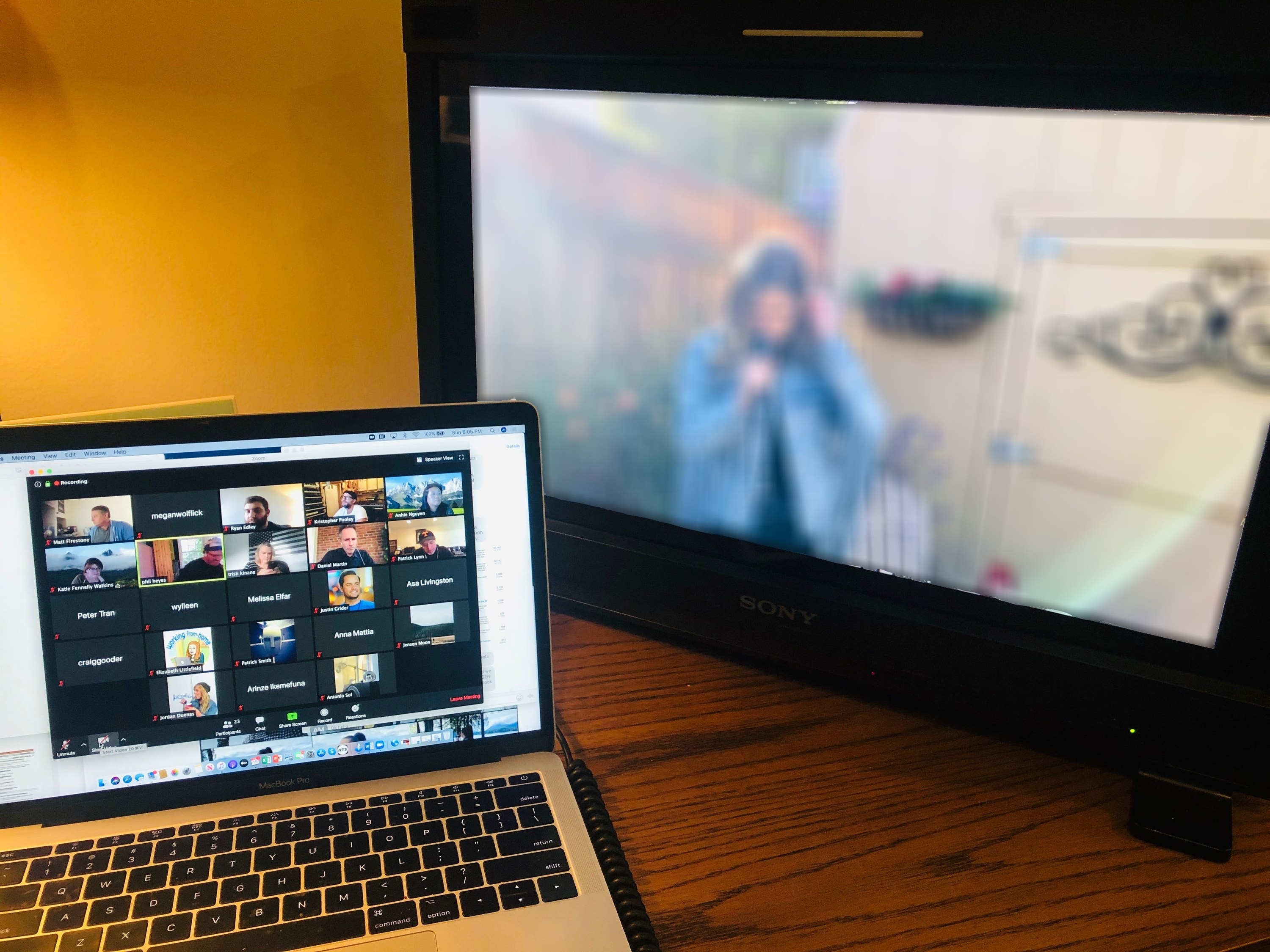
American Idol producers working on the remote show. |
According to Farjam, the Keeping Up With the Kardashians producer, the way production has shifted during quarantine will be representative of a temporary moment in time instead of a permanent fixture in entertainment.
“I think for now we are just making it work and it's going to be fascinating and fun to watch, but I still think it takes a team to make things the best that they could be,” Farjam said. “We were at such a trend, in my opinion, where everyone wanted more premium content. People wanted content to look shiny, glossy, and beautiful and use prime lenses and all this stuff. Then all of a sudden, it was like, everyone's going in quarantine and everyone's going to have to videoconference in and deal with whatever kind of quality you can get. But I do think once this time is over, people are gonna start craving the beauty and the premium and the style again.”
Gondelman from Desus & Mero said this new way of working together remotely has been an exciting experiment in creativity “against terrible circumstances” and “is a testament to the flexibility and talent of the people on our team.” Virtual TV production is an effective temporary solution, the producer said, but he doesn’t envision this process being permanent because of the simple fact that people miss working alongside other people.
“Even though we're on calls with each other, everybody kind of misses being in a workplace together and getting to collaborate in person and just the little subtleties of talking with people in the same room,” Gondelman said. “Facial expressions don't always read on a 3X4 box and just the speed at which you can share ideas and build on other people's. I think people really do miss it.”
Now that a smaller staff of television crews are developing new skill sets and being innovative about how to get their shows made, Ghalayini, the Full Frontal With Samantha Bee producer, said she thinks the industry might change “in the sense that we're learning that you can make something with less.”
Whatever those potential changes will be, however, remain unclear given the overall uncertainty of how long statewide shelter-in-place and quarantines will last.
“I'm not sure if you can tell what will come in the future now, but I do think like you'll probably see some sort of new version of storytelling emerge from this,” Ghalayini said. “Because invariably what will happen is people will have to get creative in new ways, and I think when they learn new languages and develop new tools, they're not just going to put them away when we can all go outside again.”
“But we're still so early in this, we just figured out how to do Zoom,” she added. “What are we going to figure out in three weeks when we get bored with Zoom?”
Keywords
Newer articles
<p>The ceremony was held in Moscow amid a tense geopolitical situation and diplomatic rift with the West</p>
West has a decision to make – Putin
Free Madonna concert draws crowd of 1.6m to Brazil’s Copacabana beach
Police make arrests in killing of B.C. Sikh activist Hardeep Singh Nijjar
Hamas tells Qatari, Egyptian mediators it agrees to ceasefire proposal
Labour's Sadiq Khan easily wins record third term as mayor of London
Fans stunned by TV star’s weight loss
Craig David, a hitmaker since 2000, is still getting audiences dancing
Drake denies allegations by Kendrick Lamar of underage sex and harbouring secret child
Bombshell new theory on Titan sub disaster
